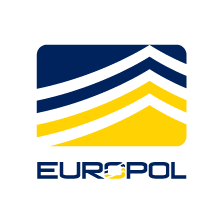Europol

What is exactly Europol? Europol is a high-security operations center that operates around the clock: 24 hours a day, 7 days a week. It´s mission is to support Member States in the fight against serious and organized threats, terrorism and cybercrime. It´s headquarters are in La Haya, the Netherlands, and it also works with non-Member states and international organizations. Europol fights against: terrorism, drug trafficking and money laundering on an international scale, organized fraud, euro counterfeiting and human trafficking.
Large-scale criminal and terrorist networks pose a significant threat to the internal security of the Union and to the security and livelihood of its citizens.
Europol responds to the needs of Member states and analyzes crime trends within the European Union. The agency assists in investigations initiated by member states, although Europol officers never arrest citizens or promote investigations. Europol’s work usually involves dealing with crimes that require an international approach and cooperation between several countries, both within and outside the EU. The decision as to which crimes should be prioritized is determined by the EMPACT platform.
EMPACT is a structured platform for multidisciplinary cooperation to combat serious international and organized crime. It is driven by the Member States and supported by the institutions, bodies and agencies of the European Union, in line with their respective mandates.
One of the reasons why Europol has key imporance in the EES – ETIAS – SEIAV structure is because it maintains excellent cooperation agreements with partner law enforcement authorities in Europe and the rest of the world. It is also proud of its accountability mechanisms, which are among the most robust and transparent in the world.
Facts and figures about Europol:
- A staff of more than 1400 employees
- 264 Europol liaison officers
- more than 1000 international investigations are supported each year
- Europol is the Official EU Agency since 1st January 2010
At the EU level, Europol is accountable to the Council of Ministers of Justice and Home Affairs. This Council is responsible for carrying out the main tasks of guiding and controlling Europol, as well as appointing the executive director and deputy directors and approving Europol’s budget (which is part of the general budget of the European Union) together with the European Parliament. It may also adopt, jointly with the European Parliament, regulations governing Europol’s work. Each year, the Council submits a special report on Europol’s activities to the European Parliament.
Europol is headed by an Executive Director who is its legal representative and is appointed by the Council of the European Union. The current Executive Director of Europol is Catherine De Bolle, who took office in May 2018.
